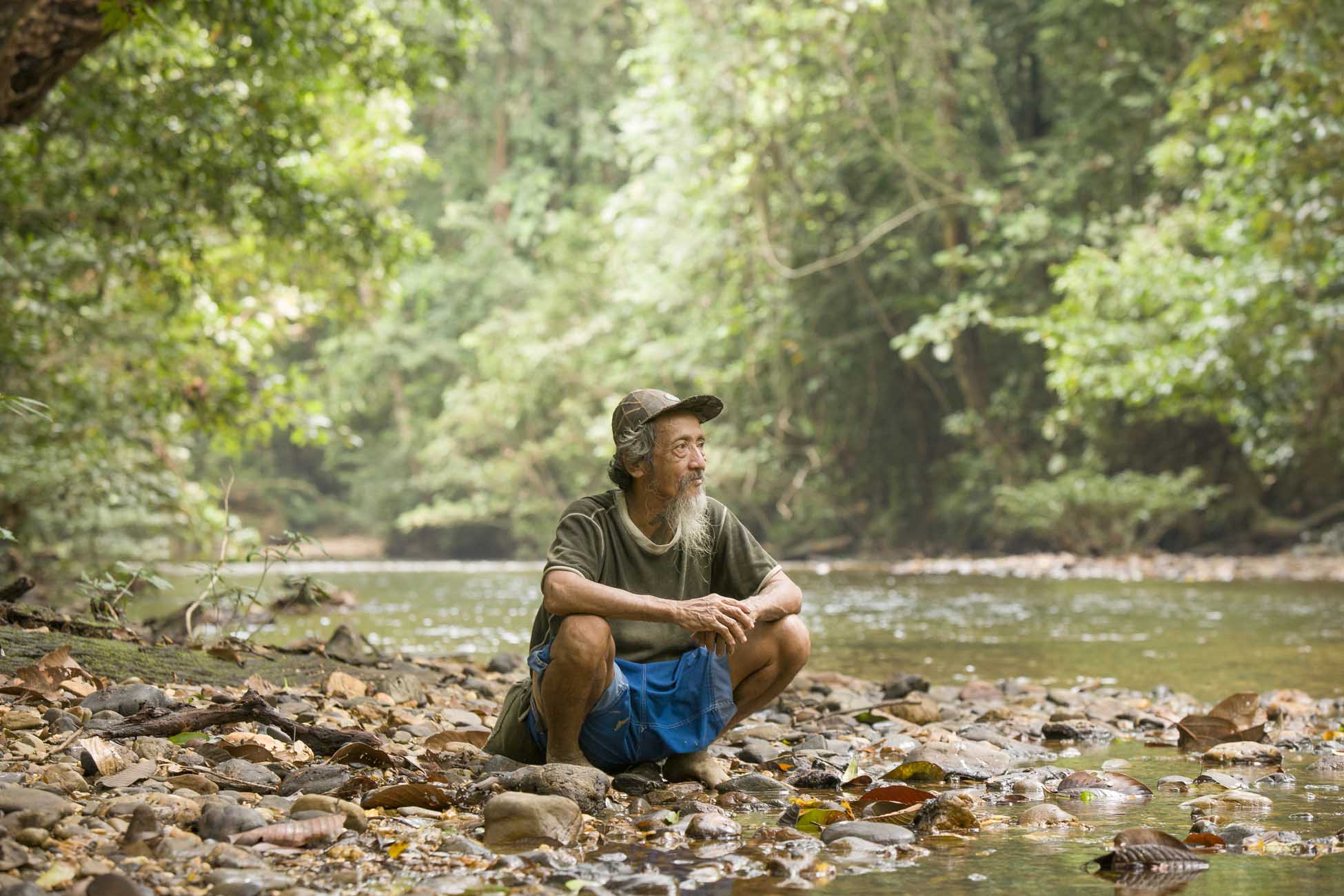Words from Project Director, Paul Redman during COP 21 in Paris:
Over the last two years the team behind the ‘If not us then who?’ project have been trying to build understanding, trust and solidarity. We are trying to understand what it means to save forests for the peoples that live in them. Our journey began by talking to indigenous leaders about their stories and their heroes from their communities. We then travelled with them to remote villages in Brazil, Central America, Indonesia, Peru and Congo to listen further but also, fundamentally, to record their testimonies, their daily struggle for existence, their histories. These powerful and emotional stories have not often been revealed and so by revealing them we empower them and by retelling them they are given meaning. We have made many heartfelt short films and we have taken some beautiful photographs but that is only one part of the story.
With the project and our indigenous partners we are also trying to build trust. Trust within the indigenous movement, that across the world there is a shared set of beliefs. Trust within the charity sector of the importance of local solutions. Trust within the eyes of the public of the co-existence of forests and people. Now, here in Paris at the COP 21 Climate Change conference, trust in decision makers to rely on indigenous peoples to protect the world’s forests. With this trust we can bring people together to build the solidarity we need to heal our planet.
So I regularly ask myself – because I have some trust issues – how can we trust indigenous peoples? Over the last 2 years I have agonised over this question day and night: when conducting research and planning for a long trip; travelling through a strange country for the first time; interviewing person after person; reading the transcripts of hours and hours of interviews and pouring through these documents for accuracy and emotional truth; watching and re-watching their recorded responses for emotional clues to the veracity of their beliefs and finally distilling all of that into the short films that you can watch on-line. In doing this I have found immense reassurance in their words and actions.
Today there are peoples that understand their forests like it is the hair on their bodies. They see the spirits of their ancestors in the unique biodiversity that surrounds them and give rich spiritual meaning to these plants and landscapes. They use the forest daily, for both nourishment from food and water and for healing with medicinal plants. They have done all of these things relatively unchanged for hundreds of years and have had little impact on the forests around them. When they see their forests torn down it affects them immensely and they will fight to their last breath to keep it. There are not many peoples who will do this for our planet’s lungs. They are the white blood cells of our infected planet.
So if we need to heal this earth and protect our natural world then the answers must be in their hands. If we are ever to truly belong on this earth then the nature of belonging must be understood through them. If we believe we have to keep forests to regulate our climate and we believe that needs to be done now and quickly, then it is through them that we must look for solutions.
What if you just don’t care? What if, despite all we collectively know about the state of our planet, you still feel distant and detached from our circumstance? Then I think it is worth thinking over who we are. Despite our beautiful technological advances – the planes, trains and automobiles, the internet, the computer, the camera, the smartphone and the drone and many wonderful things besides – we are still – in our skin and bones, in our bodies that breathe air, our senses that crave the natural world, our yearly and monthly cycles, our ability to produce offspring and in our daily need for water and food – we are very much still a part of this natural world.
‘We are not fighting for nature, we are nature fighting back’
– a quote from the tattoo of a waitress in Bristol.
